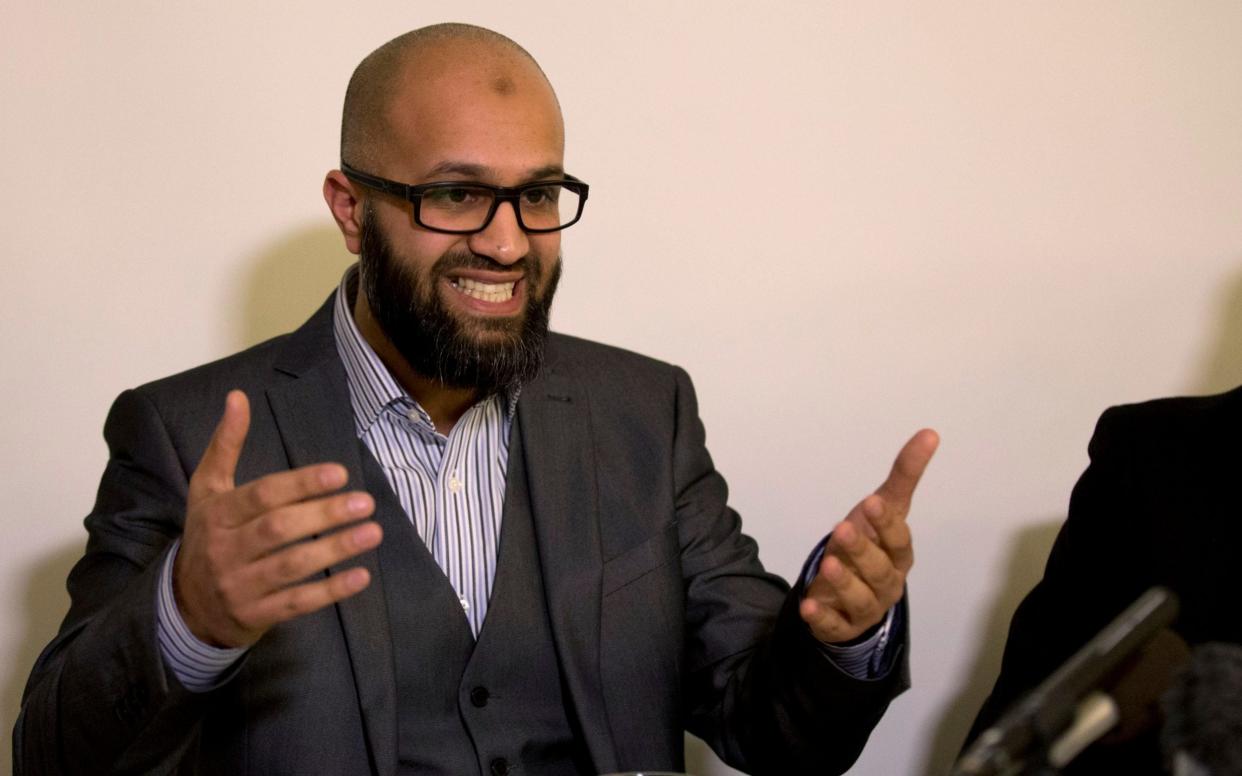Manchester University Press criticised for publishing book linked to Islamist advocacy group

Manchester University Press has been criticised for giving a “veneer of academic respectability” to a controversial Islamist advocacy group by publishing a book by one of its leaders.
In October, the publishers linked to the University of Manchester will print ‘I Refuse to Condemn’, edited by Asim Qureshi, research director for Cage, a group Boris Johnson once described as “apologists for terror”.
Mr Qureshi came to prominence in 2015 when he defended Mohammed Ewazi as a “beautiful young man” after he was identified as Jihadi John, the Isil executioner responsible for beheadings in Syria.
Sara Khan, Britain’s first counter-extremism commissioner, criticised the move as giving legitimacy to a group it had found gave support for convicted terrorists, as well as platforms for “Al-Qaeda ideologues”.
“Cage’s senior leaders have advocated supporting violent jihad overseas,” Ms Khan said, adding how Mr Qureshi had also refused to condemn the preachings of Haitham al Haddad, a cleric Mr Qureshi once described as a mentor and who defended female genital mutilation and stoning to death of adulterous women.
“Groups like Cage use the guise of ‘freedom of speech’, ‘rule of law’ and ‘anti-racism’, but it is the Commission’s view that when Cage’s activism, beliefs and behaviours are examined closely, these values are in fact a cover to legitimise their divisive activism.”
The publisher’s website describes the book, a collection of essays, as exploring how “writers manage to subvert expectations as part of their commitment to anti-racism”.
David Toube, policy director of the extremism think tank Quilliam, said Cage has a “long and disturbing track record of rallying support for dangerous terrorists”, adding it was a “slap in the face” for the victims of the Manchester Arena bombing that Manchester University's publishing house is publishing the book.”
Haras Rafiq, also of Quilliam and a former Government advisor on tackling extremism, said as someone born in Greater Manchester, he was particularly insulted as one contributor, Fahad Ansari, had written for Cage criticising the “unfairness” of the extradition from the UK to the US of Abid Naseer, who was subsequently jailed for plotting to blow up the Manchester Arndale Centre, a conviction he described as “weak”.
He said the book gave Cage a “veneer of academic respectability”.
A spokesman for Manchester University Press said the book was not a defence of violent criminals but an “examination of society’s expectations around an ‘appropriate’ response from innocent people of colour unconnected with extremists except for similarities of race or religion.”
He continued: “The book holds that a refusal to condemn an individual or their actions cannot and should not be interpreted as support for that person or their conduct. “
He added how some had “misunderstand the book’s message, and we would like to make clear to anyone in doubt that MUP’s reaction to the Manchester Arena bombing has been of solidarity with our city.”
A Cage spokesman said criticism of a book before publication demonstrated “their obsession with censoring opinions critical of state policies” as well as “suppressing freedom of expression”.


